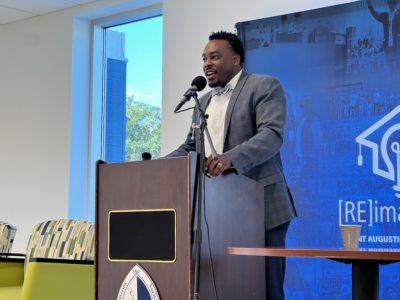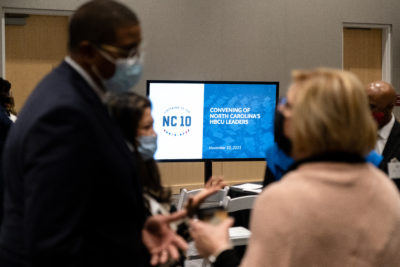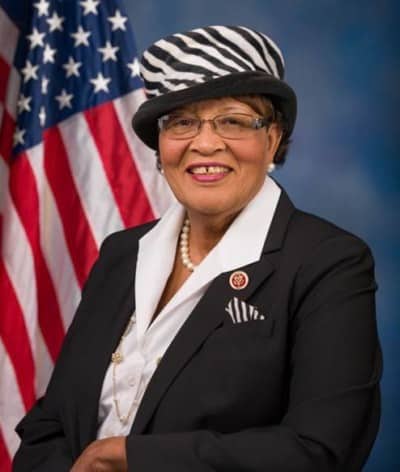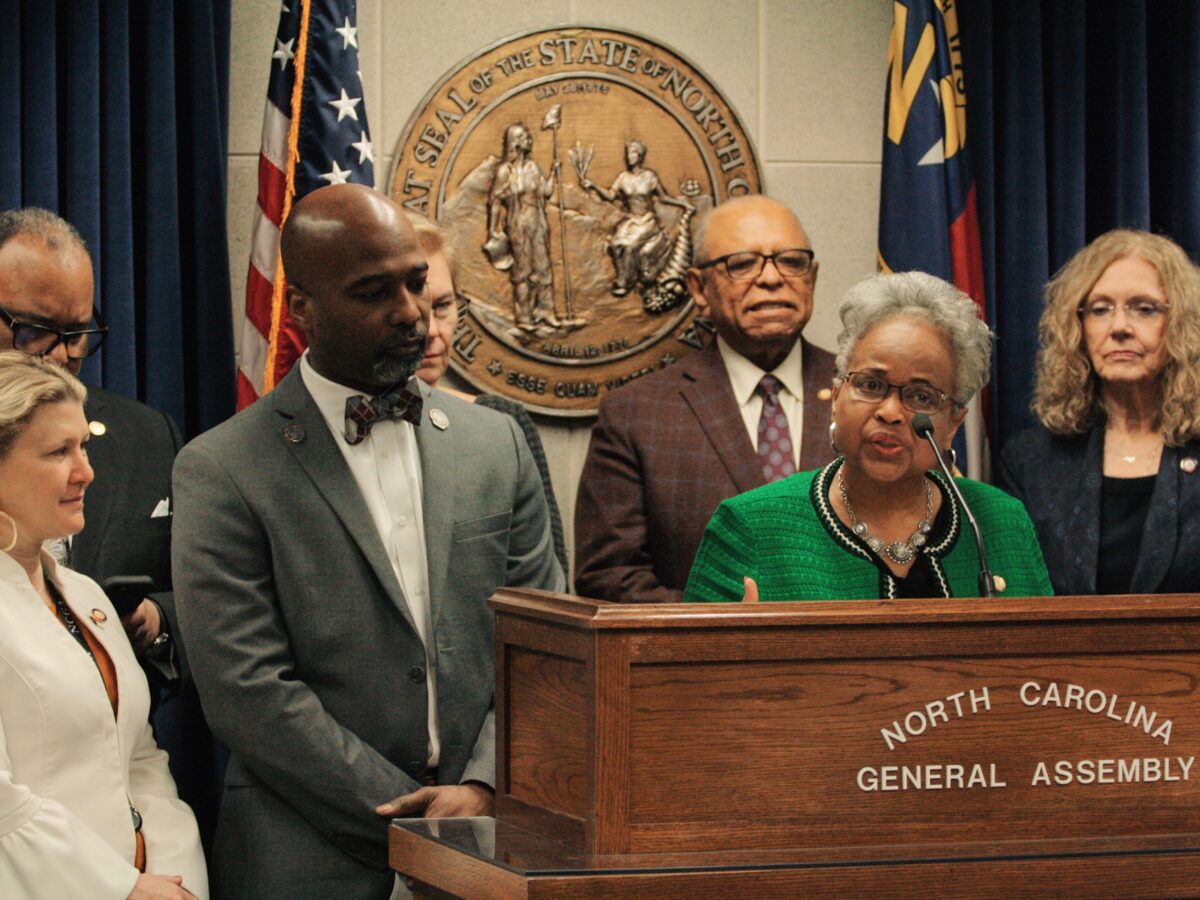
Share this story
- North Carolina's HBCUs have a collective economic impact of $1.7 billion. Caucus chairs said the group's purpose is to highlight and expand that impact. #ncpol
- The caucus is modeled after the Bipartisan HBCU Caucus in the U.S. Congress. It is chaired by two Democratic lawmakers and two Republican lawmakers, each of whom represents a districts with an HBCU. #ncpol
|
|
North Carolina’s new bipartisan historically Black colleges and universities (HBCU) Caucus will hold its first official meeting next week to outline specific goals for maximizing the potential of the NC10, caucus co-chair Sen. Gladys Robinson, D-Guilford, said at a press conference on Wednesday.
The caucus is modeled after the Bipartisan HBCU Caucus in the U.S. Congress, which North Carolina Rep. Alma Adams, D-District 12, started in 2015. On Wednesday, the other Democratic Co-Chair, Rep. Zack Hawkins, D-Durham, said the creation of the HBCU caucus marks the first in a state legislature. The caucus also has two Republican chairs: Sen. Carl Ford, R-Rowan and Senate Republican Joint Caucus Leader, and Rep. Jon Hardister, R-Guilford and House Majority Whip.
“We thank you for joining us as we embark on this extraordinary mission, but one that’s much needed, in forming an HBCU, historically Black colleges and universities, caucus,” Robinson said. “It’s something we’ve been working on a very long time, some of us, but we are excited to have a collaborative effort this time.”
Sign up for the EdWeekly, a Friday roundup of the most important education news of the week.
Lawmakers don’t have to be HBCU alumni to join the caucus, but both Democratic chairs are. Robinson graduated from Bennett College; Hawkins from both Elizabeth City State University and North Carolina Central University. Several other caucus members also graduated from HBCUs.
Each of the chairs represents a district that includes an HBCU.
North Carolina’s HBCUs have a collective economic impact of $1.7 billion, Hardister said, citing research from the Hunt Institute, which will help facilitate caucus discussion.
The caucus will hold its first official meeting next week, but Robinson said members are already working on an HBCU study bill to identify the history, contributions, challenges, and funding of the colleges.
The state has more four-year HBCUs than any other state in the nation and is home to the largest HBCU in the country. The NC10 includes five public colleges that are a part of the UNC System, and five private schools:
- Shaw University in Raleigh
- St. Augustine’s University in Raleigh
- Johnson C. Smith University in Charlotte
- Fayetteville State University
- Bennett College in Greensboro
- Livingstone College in Salisbury
- North Carolina A&T State University in Greensboro
- Elizabeth City State University
- Winston-Salem State University
- North Carolina Central University in Durham
Hardister said he believes his fellow Republican legislators will seriously consider legislation that comes from the caucus, such as the expansion of need-based scholarships.
“We already have made bipartisan progress in supporting HBCUs,” Hardister said.
“We have done a lot,” added Ford, the other Republican chair. “And obviously, we can do more.”
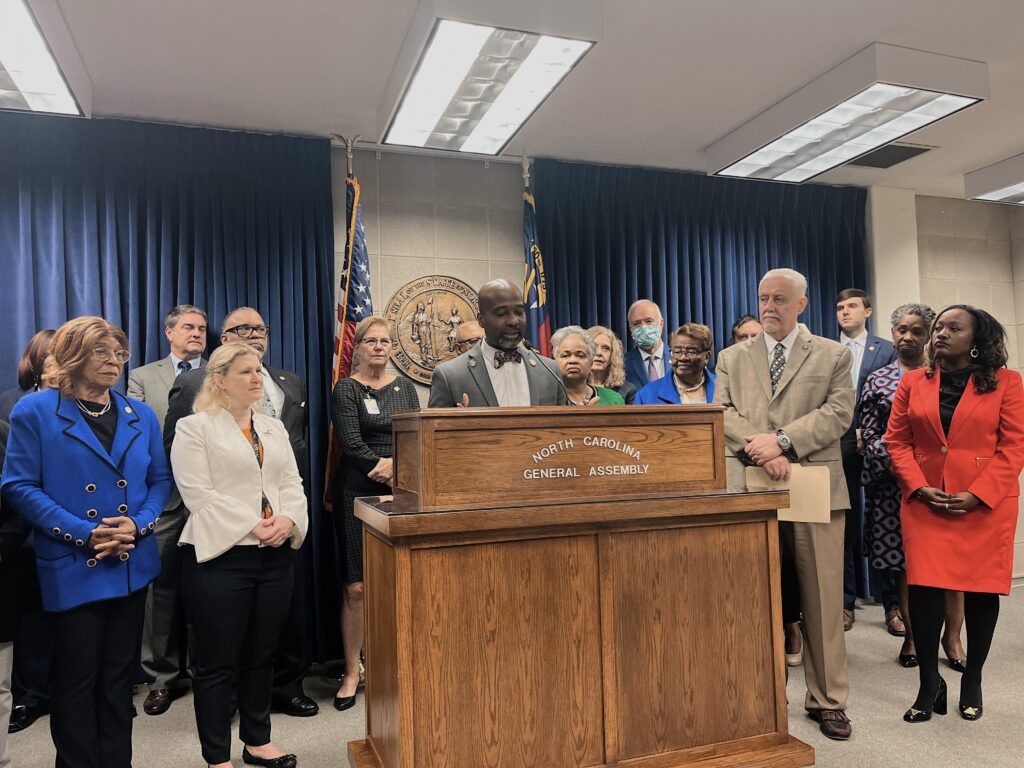
Efforts to support HBCUs
The formation of the caucus was first reported by the News & Observer last week, but it comes after years of efforts to increase support for HBCUs.
In fall 2021, the first convening of North Carolina’s HBCUs met at Johnson C. Smith University in Charlotte. The initiative was hosted by the Center for Racial Equity in Education (CREED) to engage the HBCUs individually and collectively to identify challenges and opportunities. (The Hunt Institute, myFutureNC, and EducationNC also participated in the initial phase of the initiative.)
After visiting all 10 HBCUs, CREED issued recommendations to increase educational attainment and institutional prominence. Those recommendations included passing legislation to update HBCU infrastructure and enact restorative funding, among other items. You can read more about those recommendations and the initative here.
Last November, about 100 stakeholders gathered at St. Augustine’s University in Raleigh to celebrate a formal beginning for that work one year later. The first NC10 HBCU Conference, themed “Partners in Progress,” was hosted by CREED.
National efforts are taking place, too. Last summer, the White House’s Initiative on Advancing Educational Equity, Excellence, and Economic Opportunity through HBCUs visited the NC10. According to the website, “the Initiative is dedicated to a Government-wide policymaking effort to eliminate barriers HBCUs face in providing the highest-quality education to a growing number of students.”
On Wednesday, Robinson highlighted the far-reaching efforts by many of her colleagues to support HBCUs. She also said the caucus has “full support” from the North Carolina Legislative Black Caucus and the N.C. Independent Colleges and Universities. Robinson also thanked Sen. Paul Lowe, D-Forsyth, with whom she said she has worked on HBCU support for several years.
“This has been our baby for a long time,” she said.
Moving forward, the group will work to highlight the success of HBCUs while drafting legislation, Hawkins said. Most importantly, he hopes to increase engagement between the General Assembly and NC10.
“We have crafted a mission statement and some tentative goals, but we have plenty of work to do,” Robinson said. “We have plenty of people to do that work, and a lot of interest.”
Recommended reading
